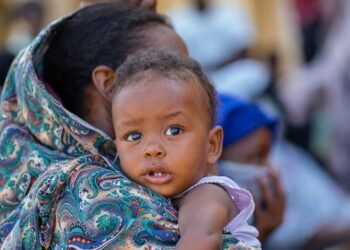Ghana has maintained its 5th position on the Africa Visa Openness Index (VOI). With a score of 0.875 on the 2020 Africa VOI, 24 countries require no visa to enter the country, 28 require visas on arrival with travelers from Morocco requiring visas to enter the jurisdiction.
Despite remaining fifth on the table, Ghana recorded an improvement in its score over last year. In 2019, Ghana ranked 5th on the index, however, with a score of 0.853.
Ghana rose back into the top five countries in the Africa VOI in 2019 up from number 7 in 2018, number 6 in 2017, and number 22 in 2016.
“Following the government’s publicized commitment to allow Africans liberal access to the country in 2016, Ghana continues to champion regional integration efforts”, the African Development Bank said.
The 2020 Index saw Benin, Seychelles, and the Gambia topping the ranking in allowing visa-free access for all African travelers into their countries. Senegal, Ghana, Rwanda, Uganda, Guinea-Bissau, Nigeria, and Cape Verde complete the first 10 rankings on the index.
Compared to 2019, Benin and Seychelles were the joint top-ranking countries with a score of 1.00. Senegal and Rwanda ranked 3rd and 4th respectively. This shows that Benin and Seychelles are the countries that are more open to other African Countries.
Just like 2019, Equatorial Guinea and Libya ranked the lowest on the 2020 VOI. Equatorial Guinea and Libya ranked 53rd each, scoring 0.019 with one country each traveling to these countries without a visa and 52 others requiring visas.
Also, 20 countries moved upwards in rank on the Index, while 50 countries improved or maintained their scores. The report shows a significant rise in e-Visas, offered by 24 countries in Africa. Notwithstanding the gains made, findings show that African citizens still need visas to travel to 46 percent of African countries.
Countries in East and West Africa rank highest among the top performers, worthy of emulation by countries in the other regions. The Index’s findings reinforce the benefits of prioritizing visa openness solutions in large and small economies, with the biggest gains accruing to business, investment, innovation, and tourism.
Further facilitating the free movement of people, goods, and services has become even more important with the start of trading under the African Continental Free Trade Area (AfCFTA) on 1st January 2021.
AfDB Vice-President, in-charge of Regional Development, Integration and Business Delivery, Dr. Khaled F. Sherif said, “As the evolving fallout of the COVID-19 pandemic has shown, countries increasingly need to look beyond domestic frontiers to boost their economic prospects.
“Visa openness will support Africa to reposition its future growth. As close to half of African destinations ease travel restrictions in line with plans to manage the pandemic, travel safety and security remain foremost in policymakers’ and people’s minds as it concerns opening up of borders, and as governments update measures for permitting travel”.
Deputy Chairperson, African Union Commission, Amb. Kwesi Quartey said “As the time has come to safely re-open and revive economies across Africa, it is imperative to institute measures that propel the continent and all its citizens forward. Liberalizing a country’s visa regime is a policy tool that can be quickly adopted to do this.”
This fifth edition of the Index highlights the negative impact of the COVID-19 pandemic, which threatens to reverse Africa’s economic gains of recent years, affecting sectors from tourism through to investment.
As travel restrictions ease and safety measures put in place to contain the pandemic, sustaining progress and momentum on more comfortable continent-wide travel is vital.
The Index published by the African Union Commission (AUC) and African Development Bank (AfDB) shows a record 54 percent of the continent is accessible for African visitors, who no longer need visas to travel or could get one on arrival, up by nine percent since 2016.
The Africa VOI measures how open African countries are when it comes to visas by looking at what they ask of citizens from other countries in Africa when they travel. It aims to show at a glance which countries are facilitating travel for citizens of other countries and how; whether they allow people to travel to their country without a visa, if travelers can get a visa on arrival in the country, or if visitors need to get a visa before travel.




















